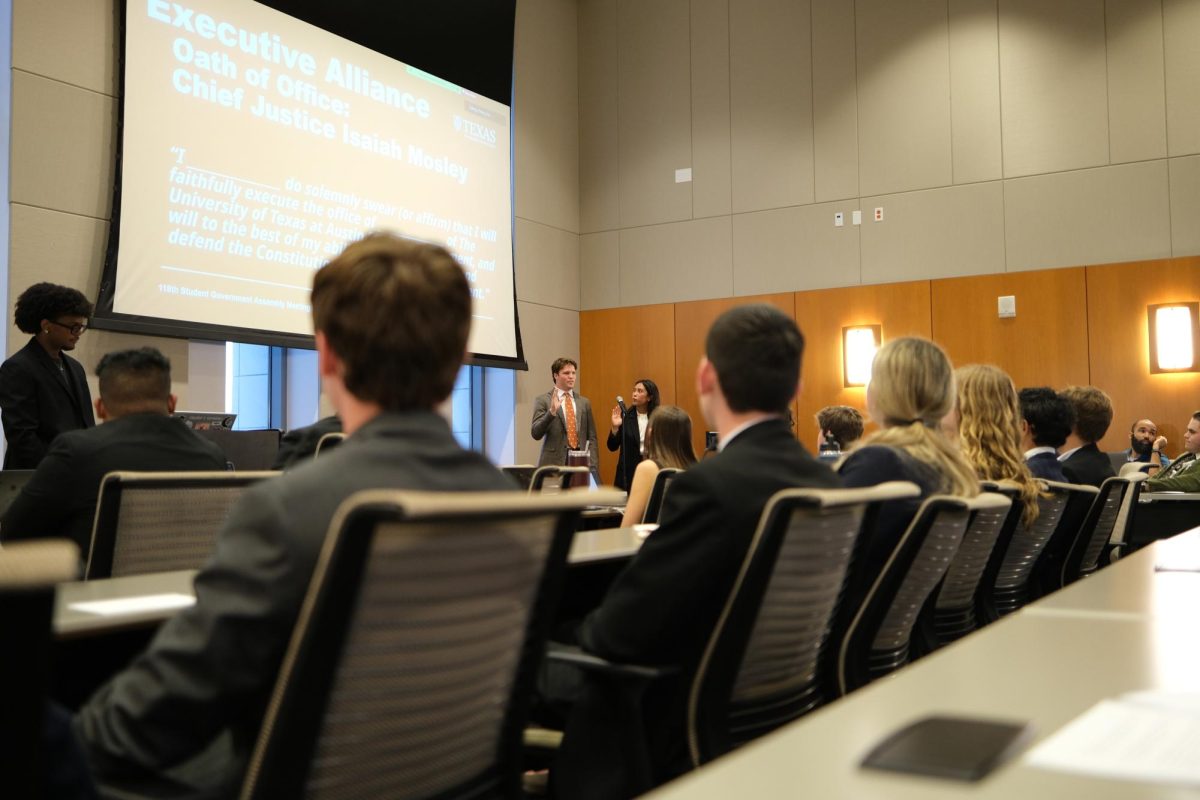An ordinance being considered by Austin City Council aims to place restrictions on the creation of cooperatives and Greek-style “group housing” in areas of North Campus.
University Area Partners — the neighborhood association which controls the West Campus area — considered a proposed zoning overlay district at a meeting Tuesday afternoon. The district would create limitations on building “group housing” in the parts of UAP that lie north of Dean Keeton Street. Group housing includes fraternities, sororities and cooperative housing.
The proposed district has been discussed among other neighborhood associations in the area, as well, and would affect the area that lies outside the University Neighborhood Overlay, where high density is desired, said Cathy Norman, a member of UAP. Much of the support for zoning overlay districts comes from single-family homeowners who don’t appreciate all that comes with living by a fraternity or co-op housing, she said.
The proposed zoning overlay district would raise problems for existing Greek housing as well as for co-ops looking to purchase land north of Dean Keeton Street, Norman said.
“The student body objects, for obvious reasons,” she said. “It limits the use for fraternities and sororities and group residential co-ops — other low-income options.”
The zoning overlay district will eventually be voted on by the Central Austin Neighborhood Planning Area Commission, a committee made up of two members of Student Government and representatives from neighborhood associations located in areas with heavy student populations. The zoning overlay district was proposed without input or compromise from the student renters who make up the majority of the CANPAC area, said John Lawler, SG liberal arts representative and CANPAC member.
If a zoning overlay district is implemented by CANPAC, it would negatively affect affordable housing by encouraging developers to build multi-family apartment complexes for density instead of less expensive group housing like cooperatives, he said.
“What we’re basically doing is incentivizing one style of development, which is the less-affordable, newer, nicer apartment-style building,” he said. “We’re putting a burden on affordable housing which creates a sense of unease within the market.”
Cooperative housing is generally a better housing system than apartment complexes for student living, said community member Mac McKaskle. Affordable housing is a necessity in college neighborhoods, he said.
Noise and other issues that single-family homeowners may have with group housing come with living in a college neighborhood, McKaskle said.
“If you’re living in a major city next to a major university, wake up,” he said. “You’re going to be next to college students. If you have a problem with your neighbors having a deck that’s loud, go knock on their door. When we were in college and we were too loud, that’s what they did. And we were a lot noisier and louder in the ’70s than kids nowadays.”



















